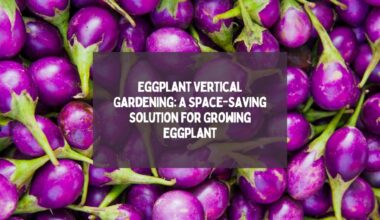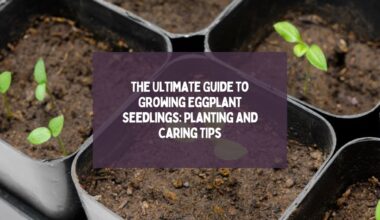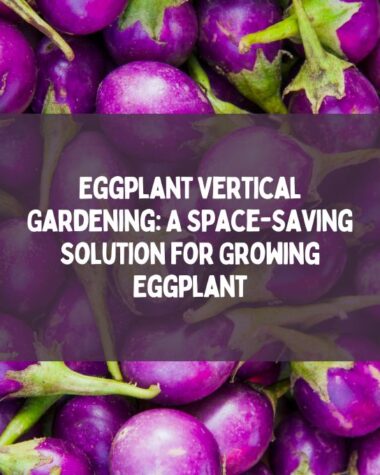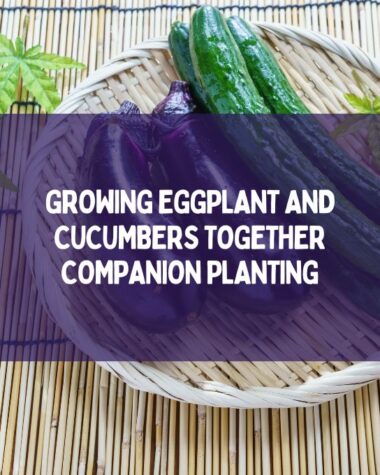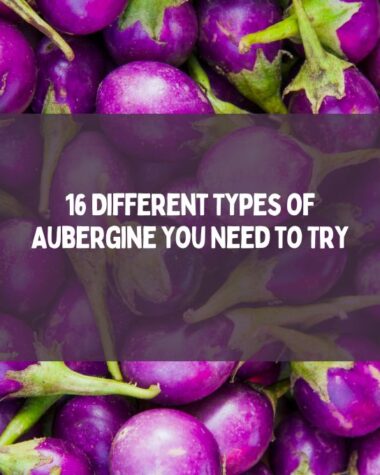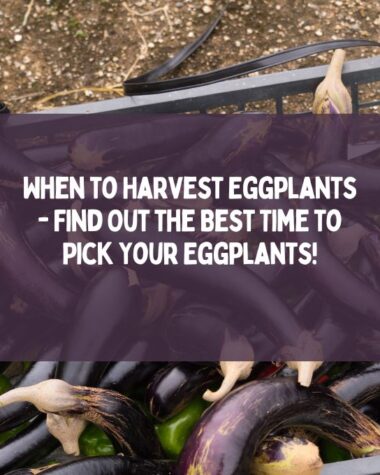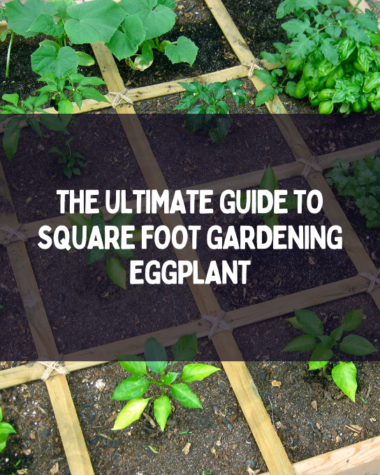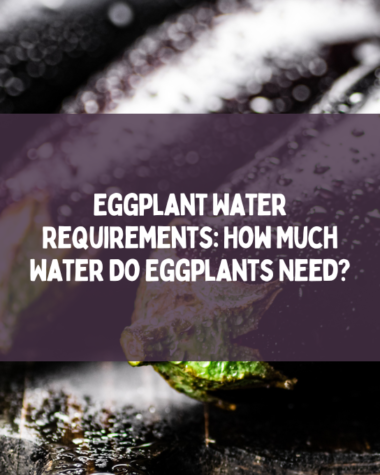Eggplant container gardening is a great way to grow your own aubergines at home. Planting eggplant in containers is a great way to enjoy the taste and health benefits of fresh, homegrown produce.
With the right container size and soil preparation, you can successfully grow eggplants at home and enjoy the fruits of your labor all season long. In the previous article, I discussed how you can plant eggplants vertically.
Now in this article, I’ll provide an overview of eggplant container gardening, as well as tips and tricks for planting and caring for your eggplants.
Read on to learn how to get started growing your own eggplants in containers!
What is the Best Planting Time For Container Grown Eggplants?
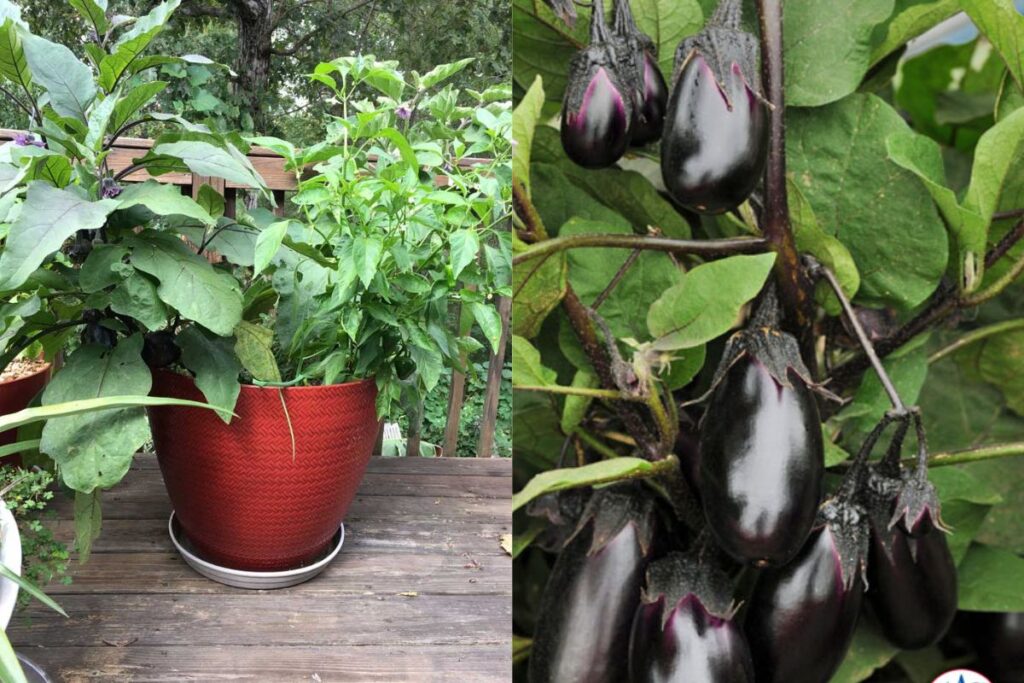
If you want to grow your own eggplants in containers, the best time to plant is during summer and even in early fall. You’ll want to wait until the weather is reliably warm at night, a consistent 55°F or above.
When growing eggplants from seeds in pots, the best time to start sowing is around April and May when the night temperature is reliably high enough. Make sure to choose a good quality seed-starting mix to ensure good drainage. To prevent problems such as disease and pests, avoid crowding your plants and give them plenty of space.
When choosing a container for your eggplant, make sure it’s a large one as eggplants need plenty of room to grow. The container should also have adequate drainage holes for excess water.
If you’re growing more than one eggplant in the same container, consider using a variety of shapes and sizes and ensure the container is wide enough to accommodate the plants when they reach maturity.
What Are The Best Mini Eggplant Varieties to Grow in Containers?
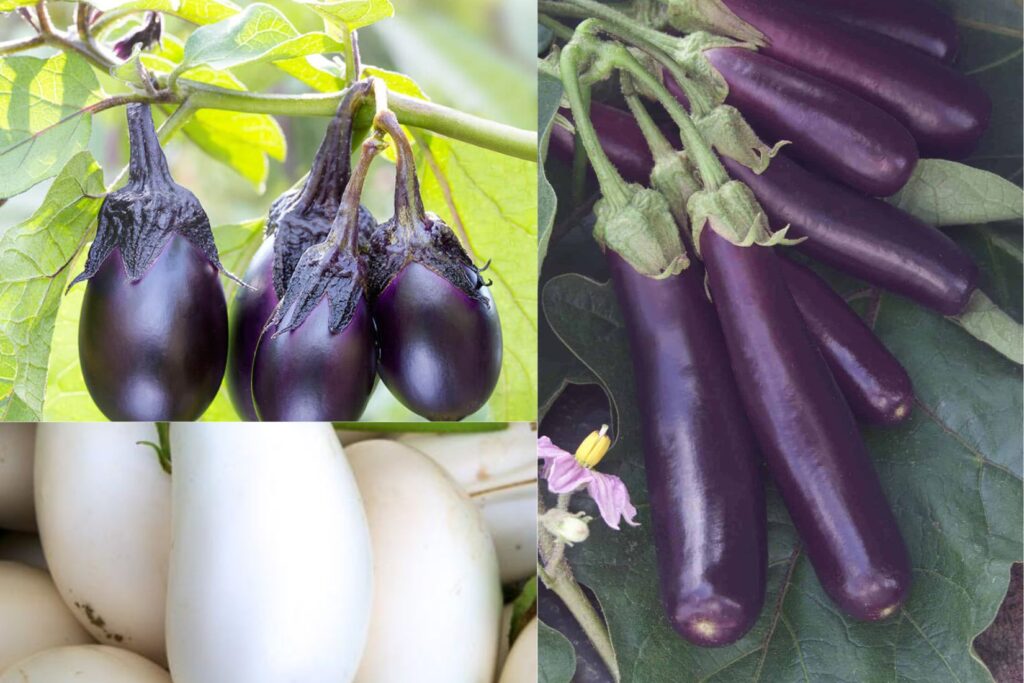
When it comes to mini eggplant varieties for container gardening, there are a few that stand out above the rest. Depending on the size of your container, these are some of the best options for growing aubergines in containers:
- Black Beauty: One of the most popular varieties of eggplant, Black Beauty has deep purple skin and white flesh. It is extremely versatile, making it a great option for growing in containers.
- Patio Baby: This variety grows well in containers and is great for small spaces. The small, round fruits have a mild flavor and can be harvested while they are still quite small.
- Easter Egg: This variety is an heirloom eggplant that produces beautiful fruits with a combination of white, purple, green, and yellow colors. It can reach up to two feet tall, so if you’re looking for something to grow vertically in your container, this is the best choice.
- Mini White: Another popular variety of mini eggplant is Mini White. The small, white fruits are extremely tender and flavorful.
No matter which variety you choose, it’s important to make sure you have the right size container for eggplant. You also want to make sure you keep an eye out for any common problems associated with growing eggplants in containers such as aphids or mildew.
With the right care and attention, you can successfully grow any of these mini eggplant varieties in containers
Related Reading:
- 16 Different Types of Aubergine You Need to Try
- How To Grow Lemon Cucumber Plant In Your Vegetable Garden?
Requirements for Growing Eggplants in Containers
Eggplants, also known as aubergines, are versatile and delicious vegetables that can be grown in containers, making them a great option for those with limited space or no access to a garden.
However, growing eggplants in containers requires a bit of planning and attention to certain requirements in order to ensure a successful harvest.
Here are some key factors to consider when growing eggplants in containers.
- Position: Eggplants need to be grown in full sun, so it’s best to place them in a south or west-facing spot. If you’re using a container to grow eggplant, choose one with drainage holes and place it in an area that receives at least six hours of direct sunlight each day. For those living in warm climates, growing eggplant vertically is an option as well.
- Soil: When it comes to the soil for your eggplant container garden, the best container for eggplant is one that drains well and contains compost or aged manure for added nutrients.
- Watering: Eggplants need the same amount of water throughout their growing season, so water them often when it’s hot and less often when it’s cool. A drip irrigation system or hose can help maintain consistent soil moisture levels.
- Fertilizer: You can fertilize your eggplants once per month with a liquid fertilizer or every other week with a soluble fertilizer.
- Temperature: Eggplants prefer warm temperatures and are sensitive to cold and frost. Avoid planting in areas with temperatures below 60°F and above 90°F to avoid any growing eggplant problems.
How to Successfully Grow Eggplants in Containers – A Step-by-Step Guide
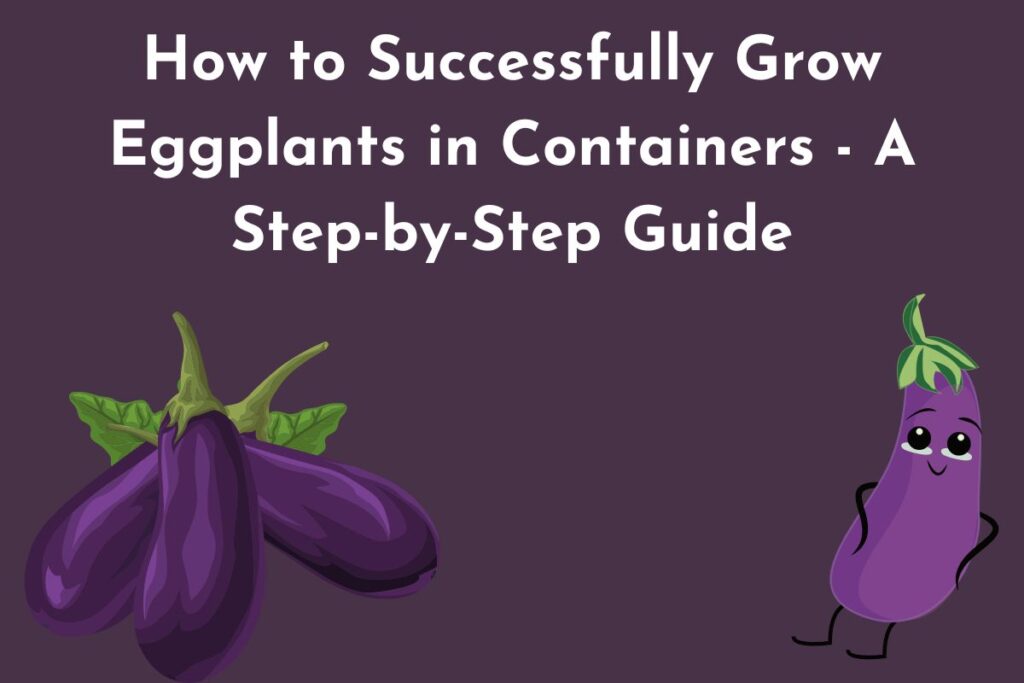
Growing eggplants in containers is a great way to enjoy their delicious fruits without taking up too much space in your garden. To make sure eggplants grow well in containers and give you a good harvest, you need to know what they need.
Here is a step-by-step guide on how to successfully grow eggplants in containers.
Choose the right container size
The size of the container you use to grow eggplants in will have a huge impact on how successful your crop is.
- Smaller containers may require more frequent watering and fertilizing, while larger ones provide more space for roots and soil to keep the plants healthy.
- Pick a pot that is at least 8 inches deep and 12 inches wide, with adequate drainage holes at the bottom.
Consider the climate you’re growing in as well; if it’s very hot, pick a larger container to help keep the soil cool.
Choose Your Soil
When growing eggplants in containers, the soil is an important factor to consider. It should be light and well-drained, with a pH of 6-7. Compost or well-rotted manure can be added for extra nutrients and soil structure. Make sure the soil is free from weeds and pests. For optimum growth, use a high-quality potting mix made specifically for container-grown plants.
Plant Your Eggplants
When planting eggplants in pots, it’s best to buy seedlings from a local nursery instead of planting seeds. Plant the seedlings at the same depth as they are in the container, and make sure that each plant is spaced out evenly.
Water the soil around each plant thoroughly after planting and mulch the soil surface. Once the plants are established, begin fertilizing with a balanced fertilizer. For best results, fertilize every other week and water regularly to keep the soil moist but not soggy.
Provide enough space for each plant
When planting eggplants in a container, make sure each plant has enough space to grow.
- Make sure the container is at least 12 inches deep and wide, as well as enough holes in the bottom for drainage.
- It’s also important to keep the soil loose and light, so it can provide the plants with the necessary nutrients.
- Space the plants around 6 inches apart, with at least 24 inches between them.
If the plants are too close together, they won’t get enough air and sunlight and won’t grow properly.
Water the plants well and install support systems
When it comes to growing aubergines in containers, you should always ensure that the plants are well watered. This means that you should water them at least once a week, or more if the weather is hot and dry.
Additionally, you should also install support systems for the plants, such as stakes and trellises, to help them stand straight and support their weight. This will also make it easier to harvest the fruits when they’re ready.
Maintain the plants with proper care and attention
Regularly monitor your eggplant plants for pests and diseases, as well as weeds.
- Prune away any dead or diseased leaves and stems.
- Water the soil when it’s dry and don’t over-water.
- Keep an eye on the size of the container, as the plants will grow quickly and you’ll need to re-pot them.
- Fertilize regularly with a balanced fertilizer, and provide adequate sunlight for optimal growth.
With proper care and attention, your eggplant plants should thrive in their containers!
Harvest
When the eggplants are ripe, they will have a glossy sheen and will feel slightly soft when touched. When the seeds are sown, eggplants can be harvested as soon as 70 days later. When harvesting, cut the stem close to the eggplant fruit and be gentle with it.
It is best to harvest eggplants in the early morning or evening, as this is when the eggplant is at its best quality. If you wait too long, the eggplant may become overly mature and turn bitter. Make sure to check on the fruits often. If you pick them at the right time, they will be tasty and enjoyable.
Common Problems You May Run Into Eggplant Container Gardening
Like any type of gardening, eggplant container gardening comes with its own set of challenges. provide Here are some of the most common problems you might run into when growing eggplants in containers, along with ways to fix them.
Flea Beetles
Flea beetles are one of the most common problems that come up when growing eggplants in pots. These small, dark-colored beetles eat growing leaves, flowers, and fruit. This makes the leaves look like skeletons.
To prevent them from damaging your plants, you should regularly inspect the plants and remove any visible beetles by hand.
Blossom End Rot
Another issue that can arise is blossom end rot. The main reason behind eggplant blossom end rot is a calcium deficiency in the soil. One can prevent this by adding lime to the soil before planting and keeping the soil evenly moist.
If you notice any discoloration on the bottom of the eggplant fruits, this could indicate blossom end rot. You should remove any affected fruits as soon as possible and increase the soil’s calcium content.
With a little bit of knowledge and preparation, you can successfully grow healthy and delicious eggplants in containers.
Read More:
- Complete Aubergine Planting Guide: Tips and Strategies for Successful Cultivation
- How to Find, Prevent, and Treat Zucchini Plant Problems?
- How To Grow Pumpkins – A Step-by-step Guide
FAQs
Here are some frequently asked questions about eggplant or aubergine container gardening.
How many eggplants can I grow in a container?
The number of eggplants you can grow in a container depends on the size of the container. Generally, one plant can be grown per 5-10 liters (1-2 gallons) of soil. So for a 20-liter (5-gallon) container, you can grow up to two plants.
Do eggplants do well in containers?
Yes, eggplants can be grown in containers with the right conditions. They need a large enough container for proper growth and good soil with ample drainage.
What is the best fertilizer for eggplant in containers?
Organic fertilizers like compost, manure that has been around for a while, or fish emulsion are great for growing eggplant in pots. The nutrients will help promote vigorous growth and provide plants with the nutrients they need to produce a healthy harvest.
How long do eggplant plants live in containers?
Eggplant plants in containers can live up to a season and beyond. With proper care and attention, they can continue to grow and produce fruit for up to 2–3 years. Regular pruning, fertilizing, and watering are essential for eggplant plants in containers to ensure long life.
